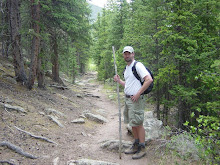Extrabiblical witness of Jesus or the early church is a fascinating topic. There of course, is not much historical information apart of the Scriptures about Jesus because of the amount of time that has past since he was here on earth. And then there is always the question as to the authenticity of any given document. When I say "Extrabiblical" I am mainly referring to documents that can be traced to be written during an acceptable period of time after Jesus was here on earth. Most of the so called Gnostic gospels would not fit this criteria, but a few may, I am not sure. For instance, the man who wrote the quote later on in this post died in 126 AD. If he lived say anywhere between 60-75 years, he would have been a young man when many of the people who witnessed Jesus life were still living. This offers a high probability of the chance that his life overlapped those who witnessed Jesus' miracles, death and resurrection; and that he was personal witness to their testimony, therefore making his testimony authentic.
Anyway, last weekend I had the opportunity to fill the pulpit for our pastor, who took a much deserved retreat. While preparing the sermon I came across this quote from a man named Quadratus, who lived in Athens in the first century and part of the second century. He was defending his new found faith to the Roman Emperor at the time. Check it out:
"Our Saviour's works, moreover, were always present: for they were real, consisting of those who had been healed of their diseases, those who had been raised from the dead; who were not only seen whilst they were being healed and raised up, but were afterwards constantly present. Nor did they remain only during the sojourn of the Saviour on earth, but also a considerable time after His departure; and, indeed, some of them have survived even down to our own times."
I used this quote to further an illustration of what the 1st century church must have been like. With members of the church body being present who had seen one of Jesus' miracles or witnessed his death and resurrection. Can you picture it?
"Come on down Lazarus, and tell us about that time.............."
And come they did. I think this is the only way to explain the documented explosion of the first century church. They had no political power, military force and didn't even have "church" buildings to meet in, but yet they grew.
It is a powerful testament to us living in "easier" times to learn from those early Christians. They were not perfect, far from it in fact (see the scoldings in the letters to the Corinthians) but they had strong faith and unity, especially in the face of persecution.
skip to main |
skip to sidebar


Thoughts on Christianity, Family, Backpacking, Mizzou Sports, Contemporary Culture and whatever else is worth musing over.
Lost Creek Wilderness, CO Summer 2008

About Me

- backpackerkauf
- Matt Kauffman from Macon, Missouri. Husband to one good woman, father to three little boys, backpacker and follower of the risen Lord.